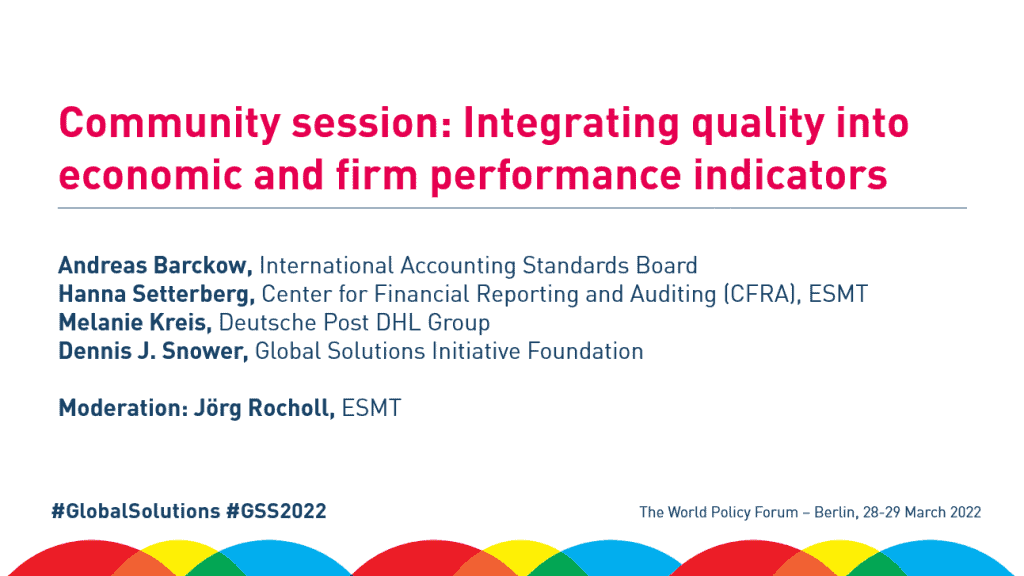Community sessions
Summit 2022
On the macroeconomic level, there have been intense discussions for many years on how the Gross Domestic Product (GDP) as the key measure for the economic activity of a certain country or region in a given time period can be augmented or even replaced by measures that take into account the quality of life. Prominent examples comprise initiatives such as the Stiglitz/Sen/Fitoussi (SSF) Commission Report (2009) and the European Commission ‘GDP and beyond’ communication (2009). These initiatives have gained particular importance in light of the recent debate on how ESG (Environmental Social Governance) and SDG (Sustainable Development Goals) can be achieved.
On the corporate level, there is a similar and vivid debate on how the traditional accounting data can be augmented by non-financial information to drive change towards the SDG. While the demand for information about corporate social responsibility as well as ESG activities has steadily risen over the years, stakeholders complain the information is not comparable and verifiable and often too shareholder-centric as it leaves out important externalities. Hence, the regulatory landscape is rapidly evolving. A few recent initiatives include the recommendations of the Task Force on Climate-related Financial Disclosures (TCFD), advocated by Blackrock’s Larry Fink in his annual CEO letters, the announced creation of the International Sustainability Standards Board (ISSB) by the International Financial Reporting Standards Foundation to deliver a global baseline of sustainability-related disclosure standards, and the European Union’s Taxonomy to create a list of “green” economic activities.
The purpose of this panel is twofold: First, it aims to provide evidence on how quality indicators should be integrated into economic and firm performance indicators. Second, the panel shall create an impulse on how quality indicators on the economic and the firm level can be integrated in a comprehensive and coherent way.






